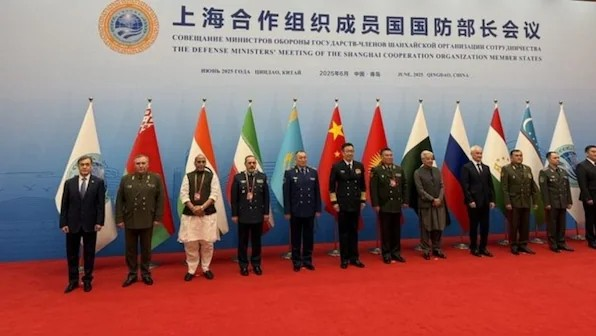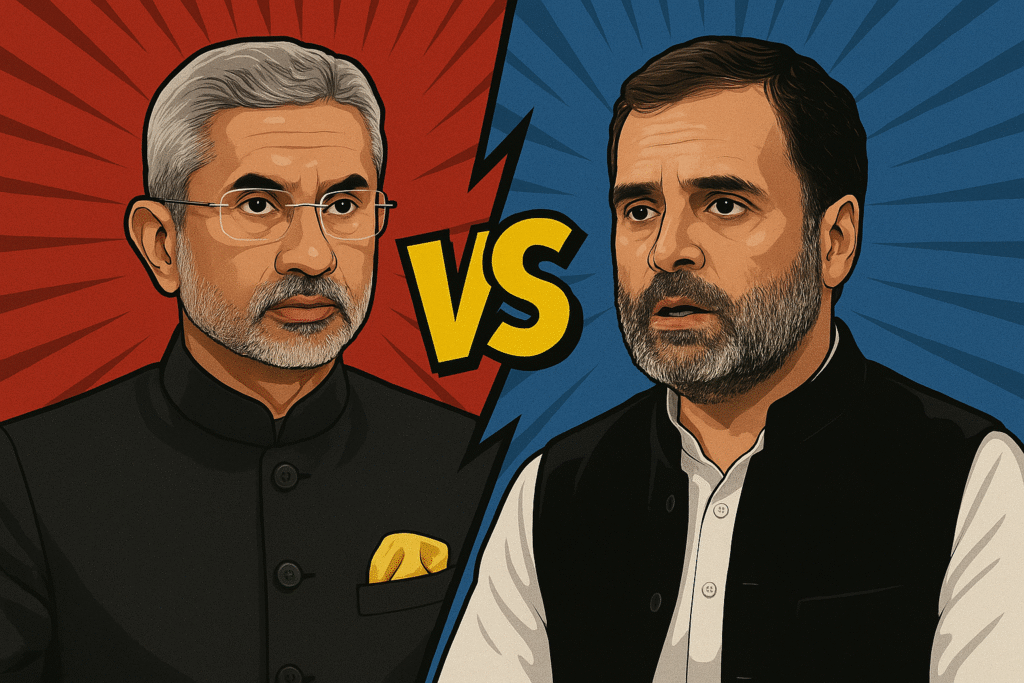India Blocks SCO Joint Declaration After Pakistan, China Attempt to Dilute Terror Language
In a powerful display of India’s evolving foreign policy under Prime Minister Narendra Modi, Defence Minister Rajnath Singh refused to sign the Shanghai Cooperation Organisation (SCO) joint declaration. The dramatic move came after Pakistan and China allegedly tried to water down references to terrorism, with no mention of the Pahalgam terror attack in Jammu & Kashmir, which claimed multiple lives. This bold refusal marks a clear red line in India’s diplomatic posture — no compromise on national security and no endorsement of selective sympathy.
India’s firm rejection of the communique has sent a strong message to the global community: the Modi era is marked by zero tolerance towards terrorism and zero backdoor deals. With this, India has once again reaffirmed its position as a nation that will not be bullied into silence on matters of sovereignty and security.
Rajnath Singh’s Bold Stand Exposes Double Standards on Terror
During the SCO summit, what was expected to be a routine consensus collapsed when India noticed blatant omission of the Pahalgam terror attack, where Indian civilians were killed by terrorists. The joint draft instead highlighted attacks in Pakistan, but chose to completely ignore Indian victims. This attempt, reportedly pushed by Pakistan and China, was seen as a deliberate attempt to shift the narrative and sanitize the global conversation on terror.
Rajnath Singh, who represented India at the summit, categorically refused to sign the document. Government sources say that India clearly demanded a non-biased, comprehensive reference to terrorism, which was not met. The Defence Minister also emphasized that India will not tolerate any attempt to equate terror perpetrators with victims — a message many interpret as a direct snub to Pakistan.
📢 BREAKING NEWS: Rajnath Singh refuses to sign SCO joint statement.
— The Analyzer (News Updates🗞️) (@Indian_Analyzer) June 26, 2025
~ Why? Pak & China tried to dilute the terror talk. India stood firm on Pahalgam. Called out the hypocrisy.
No Compromise. This is the Modi Era. Zero tolerance, Zero backdoor deals🔥 pic.twitter.com/eNBN9qjnYc
This isn’t the first time India has taken a principled stand in multilateral settings. But this move is perhaps one of the strongest signals yet that India is now unwilling to rubber-stamp global statements that fail to protect Indian interests or reflect ground realities.
Moreover, the absence of a final joint communique is a rare outcome at a forum like SCO, and clearly demonstrates how India’s stand disrupted the status quo. Strategic analysts say this could be a turning point in India’s engagement with regional blocs — pushing them to move beyond rhetoric to real action.
In the backdrop of growing regional tensions and China-Pakistan proximity, India’s refusal to bow under pressure has resonated deeply with domestic audiences. The phrase “No compromise. This is the Modi Era” trended online soon after, underlining the popular support for India’s assertive diplomacy.





















